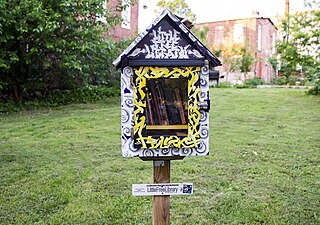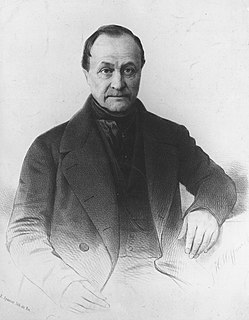Related Research Articles

Sociology of religion is the study of the beliefs, practices and organizational forms of religion using the tools and methods of the discipline of sociology. This objective investigation may include the use both of quantitative methods and of qualitative approaches.
Reality is the sum or aggregate of all that is real or existent within a system, as opposed to that which is only imaginary. The term is also used to refer to the ontological status of things, indicating their existence. In physical terms, reality is the totality of a system, known and unknown. Philosophical questions about the nature of reality or existence or being are considered under the rubric of ontology, which is a major branch of metaphysics in the Western philosophical tradition. Ontological questions also feature in diverse branches of philosophy, including the philosophy of science, philosophy of religion, philosophy of mathematics, and philosophical logic. These include questions about whether only physical objects are real, whether reality is fundamentally immaterial, whether hypothetical unobservable entities posited by scientific theories exist, whether God exists, whether numbers and other abstract objects exist, and whether possible worlds exist.
An object is a philosophical term often used in contrast to the term subject. A subject is an observer and an object is a thing observed. For modern philosophers like Descartes, consciousness is a state of cognition that includes the subject—which can never be doubted as only it can be the one who doubts—and some object(s) that may be considered as not having real or full existence or value independent of the subject who observes it. Metaphysical frameworks also differ in whether they consider objects existing independently of their properties and, if so, in what way.

The sociology of knowledge is the study of the relationship between human thought and the social context within which it arises, and of the effects that prevailing ideas have on societies. It is not a specialized area of sociology but instead deals with broad fundamental questions about the extent and limits of social influences on individuals' lives and with the social-cultural basis of our knowledge about the world. Complementary to the sociology of knowledge is the sociology of ignorance, including the study of nescience, ignorance, knowledge gaps, or non-knowledge as inherent features of knowledge-making.
An ideology is a set of beliefs or philosophies attributed to a person or group of persons, especially as held for reasons that are not purely epistemic, in which "practical elements are as prominent as theoretical ones." Formerly applied primarily to economic, political, or religious theories and policies, in a tradition going back to Karl Marx and Friedrich Engels, more recent use treats the term as mainly condemnatory.
Pawnee mythology is the body of oral history, cosmology, and myths of the Pawnee people concerning their gods and heroes. The Pawnee are a federally recognized tribe of Native Americans, originally located on the Great Plains along tributaries of the Missouri and Platte Rivers in Nebraska and Kansas and now are currently in Oklahoma. They traditionally speak Pawnee, a Caddoan language. The Pawnees lived in villages of earth lodges. They grew corn and went on long bison hunts on the open plains twice a year. The tribe has four bands: the Skidi and "the South Bands" consisted of the Chawi, the Kitkahahki and the Pitahawirata Pawnee.

Isidore Marie Auguste François Xavier Comte was a French philosopher and writer who formulated the doctrine of positivism. He is often regarded as the first philosopher of science in the modern sense of the term. Comte's ideas were also fundamental to the development of sociology; indeed, he invented the term and treated that discipline as the crowning achievement of the sciences.
An ideograph or virtue word is a word frequently used in political discourse that uses an abstract concept to develop support for political positions. Such words are usually terms that do not have a clear definition but are used to give the impression of a clear meaning. An ideograph in rhetoric often exists as a building block or simply one term or short phrase that summarizes the orientation or attitude of an ideology. Such examples notably include <liberty>, <freedom>, <democracy> and <rights>. Rhetorical critics use chevrons or angle brackets (<>) to mark off ideographs.
Knowledge is a familiarity or awareness, of someone or something, such as facts, skills, or objects, often contributing to understanding. By most accounts, knowledge can be produced in many different ways and from many sources, including but not limited to perception, reason, memory, testimony, scientific inquiry, education, and practice. The philosophical study of knowledge is called epistemology.
In philosophy of science and in epistemology, instrumentalism is a methodological view that ideas are useful instruments, and that the worth of an idea is based on how effective it is in explaining and predicting phenomena. According to instrumentalists, a successful scientific theory reveals nothing known either true or false about nature's unobservable objects, properties or processes. Scientific theory is merely a tool whereby humans predict observations in a particular domain of nature by formulating laws, which state or summarize regularities, while theories themselves do not reveal supposedly hidden aspects of nature that somehow explain these laws. Instrumentalism is a perspective originally introduced by Pierre Duhem in 1906.
Phenomenalism is the view that physical objects cannot justifiably be said to exist in themselves, but only as perceptual phenomena or sensory stimuli situated in time and in space. In particular, some forms of phenomenalism reduce all talk about physical objects in the external world to talk about bundles of sense data.

Constructivism is a view in the philosophy of science that maintains that scientific knowledge is constructed by the scientific community, which seeks to measure and construct models of the natural world. According to the constructivist, natural science, therefore, consists of mental constructs that aim to explain sensory experience and measurements.

Representation is the use of signs that stand in for and take the place of something else. It is through representation that people organize the world and reality through the act of naming its elements. Signs are arranged in order to form semantic constructions and express relations.

This glossary of philosophy is a list of definitions of terms and concepts relevant to philosophy and related disciplines, including logic, ethics, and theology.
Ethnoecology is the scientific study of how different groups of people living in different locations understand the ecosystems around them, and their relationships with surrounding environments.

The Social Construction of Reality: A Treatise in the Sociology of Knowledge is a 1966 book about the sociology of knowledge by the sociologists Peter L. Berger and Thomas Luckmann. The book was influential in the creation of the field of social constructionism.

"If a tree falls in a forest and no one is around to hear it, does it make a sound?" is a philosophical thought experiment that raises questions regarding observation and perception.

The Kingdom of Nri was a medieval polity located in what is now Nigeria. The kingdom existed as a sphere of religious and political influence over a third of Igboland, and was administered by a priest-king called an Eze Nri. The Eze Nri managed trade and diplomacy on behalf of the Nri people, a subgroup of the Igbo-speaking people, and possessed divine authority in religious matters.

Benedictus de Spinoza's philosophy encompasses nearly every area of philosophical discourse, including metaphysics, epistemology, political philosophy, ethics, philosophy of mind, and philosophy of science. It earned Spinoza an enduring reputation as one of the most important and original thinkers of the seventeenth century.

In Marxism, class consciousness is the set of beliefs that a person holds regarding their social class or economic rank in society, the structure of their class, and their class interests. According to Karl Marx, it is an awareness that is key to sparking a revolution that would "create a dictatorship of the proletariat, transforming it from a wage-earning, property-less mass into the ruling class".
References
- Fagan, Brian. Ancient North America. Thames & Hudson, London. 2005, p. 155.